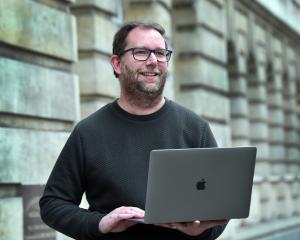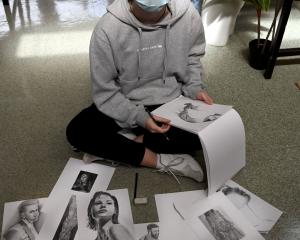By Olivia Finnie - Year 13, St Hilda's Collegiate School
A year ago, I wrote an opinion piece on feminism.
At the time, I was sure I had a pretty good grasp on what feminism really meant, but I was quite wrong.
Post writing that piece, I began to learn a lot more about intersectional feminism, and I realised that I was definitely not as educated on the meaning of feminism as I thought I was.
So, what exactly is intersectional feminism? Well, there's no Oxford Dictionary definition, but that doesn't make it any less real.
The term was actually coined in 1989 by American professor Kimberle Crenshaw.
She states intersectionality means: "The view that women experience oppression in varying configurations and in varying degrees of intensity.
"Cultural patterns of oppression are not only interrelated, but are bound together and influenced by the intersectional systems of society.
"Examples of this include race, gender, class, ability, and ethnicity.''
Basically, people often have a tendency to focus their feminism on straight, white, middle-class women, when there are a million different types of women in the world who need just as much, if not more, support.
Transgender women, women of colour, disabled women, women living in poverty, old women - the list goes on.
These women are living in the shadow of mainstream feminism, and they don't have the platform to stand up and speak for themselves.
It is crucial for white feminists to bring awareness to intersectionality, so that the women who are considered minorities have the ability to speak for themselves, to be heard, to be respected.
I know as a woman, that we've had to fight incredibly hard for the rights we have today, and I am so lucky to have been born in a time and country in which men and women are generally seen as equal.
However, as a white woman of privilege, I know that my struggles are inherently different to those of minority women.
Of course, as a white female living in Dunedin, I'm still discriminated against because of my gender.
I'm disrespected on the street by being catcalled, or whistled at.
I'm told to "get off my high horse'' because I have strong opinions (and apparently they shouldn't be taken seriously, because they're coming from the mouth of a teenage girl).
At primary school, I offered to help the teacher with something, before a boy interrupted me with, "I can do it better than a girl''.
I've dealt with sexism my whole life. We all have - boys included. But, I've never had to deal with another type of discrimination on top of this.
I don't have to walk around my neighbourhood, feeling terrified of being raped or attacked, because that's just the "norm'' in some cultures.
I don't get asked: "So, like, what are you?'' as too many biracial men and women get asked all over the world.
I don't have to worry about police brutality, because I won't be shot at or beaten by a white policeman, solely because of the colour of my skin.
Now, I'm not at all trying to say that the struggles of white women aren't valid.
I'm simply trying to express that the struggles of everybody else who is marginalised by mainstream feminism are also valid.
This is essentially the whole ideology surrounding intersectional feminism: It's understanding that different people and different cultures have their own experiences with oppression, and all of the obstacles they face should be prioritised and appreciated by all feminists.
Why should these marginalised women have to separate their feminist identity from their blackness, their gayness, their ableness, just to be included in the mainstream feminist movement?
Another reason why women outside the white and privileged category struggle to fit into the mainstream feminist movement, is the level of racism in the history of feminism, especially against African Americans.
The leader of the American suffragettes, Elizabeth Cady Stanton, felt the rights of white women were being denied because "degraded black men'' got the vote before they did.
These women claimed to be fighting for equality, when they clearly believed white men and women were the only ones deserving of equal rights.
Another American suffragette was against the prevention of lynching, because she truly believed that black men were all drunks and all guilty of raping white women.
In saying this, she conveniently turned a blind eye to all of the white men raping and selling black women throughout slavery.
Of course, the hundreds of thousands of black women who were raped by white men would never gain as much media attention as white women would.
This racism in feminism is still present today.
White feminists in America insist that women make 78 cents to every dollar a man makes.
If they were actually being factual, they would say that white women make 78 cents to every dollar a white man makes.
They would say that every black woman makes 64 cents to every dollar a white man makes, and that Latina women make 54 cents to every dollar a white man makes.
How are minority women supposed to feel comfortable calling themselves feminists if they are constantly being underrepresented and under-prioritised?
Despite the strides we have made towards gender equality over the decades, discrimination is still an ever-present issue.
We have a long way to go in terms of appreciating the many different strands of feminism that the mainstream feminist movement leaves out - including intersectionality.
Feminism is not a movement for man-hating, it is not a movement that supports only privileged women.
It is a movement that aims for gender equality for every single person, no matter who they are, what they look like, or what they believe in.
And this is why feminism still matters.











